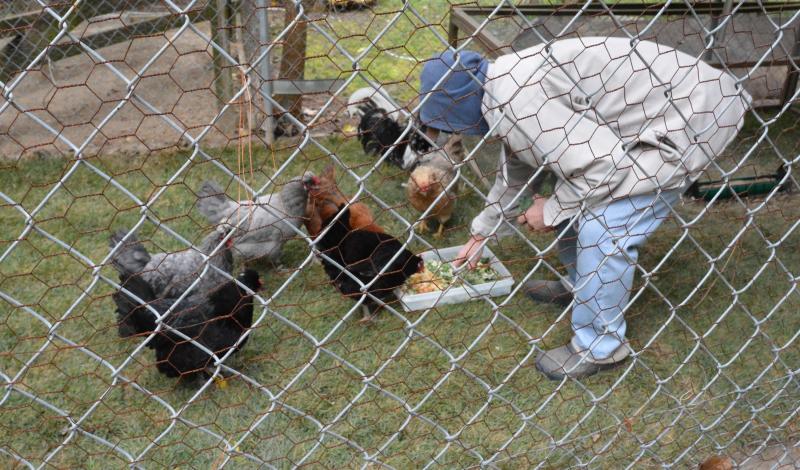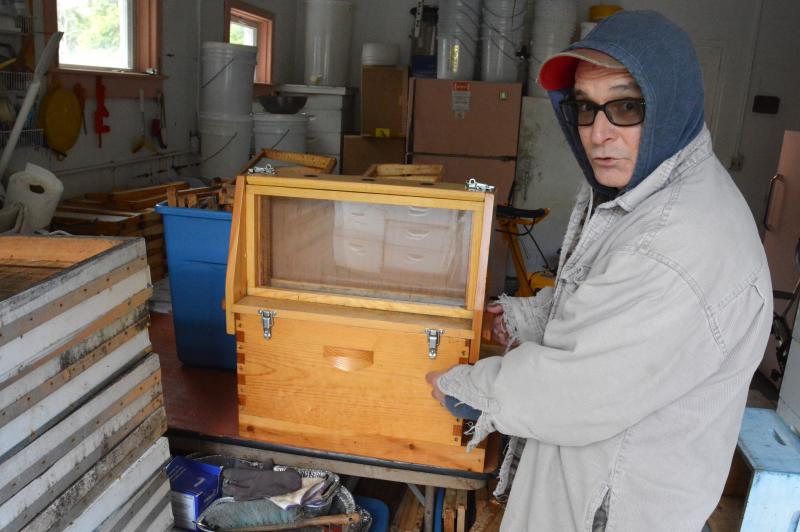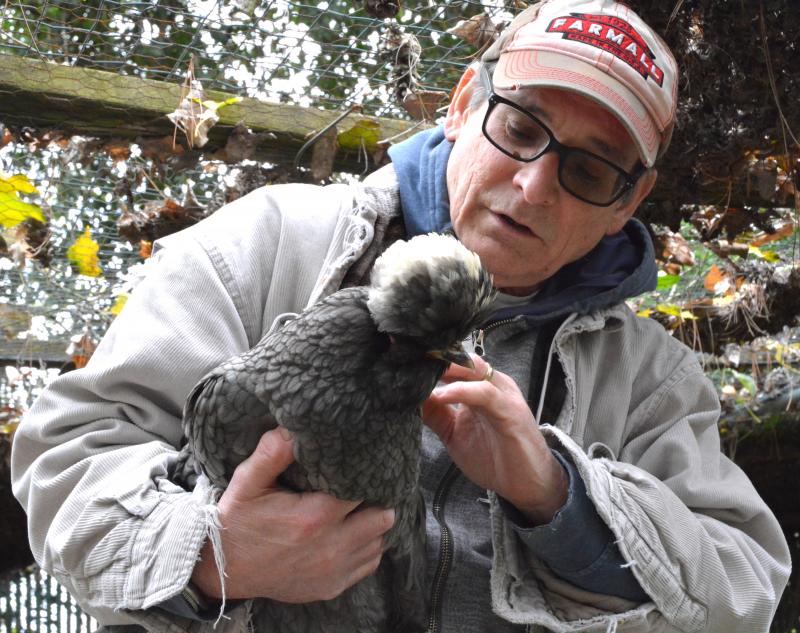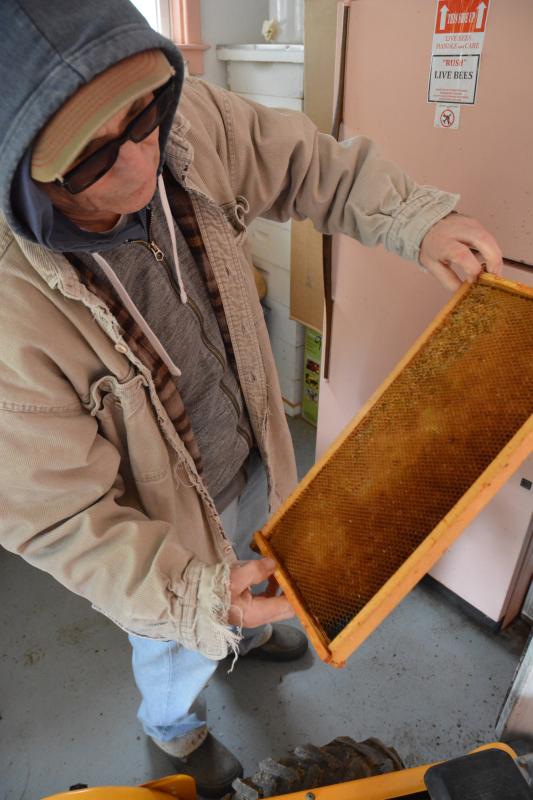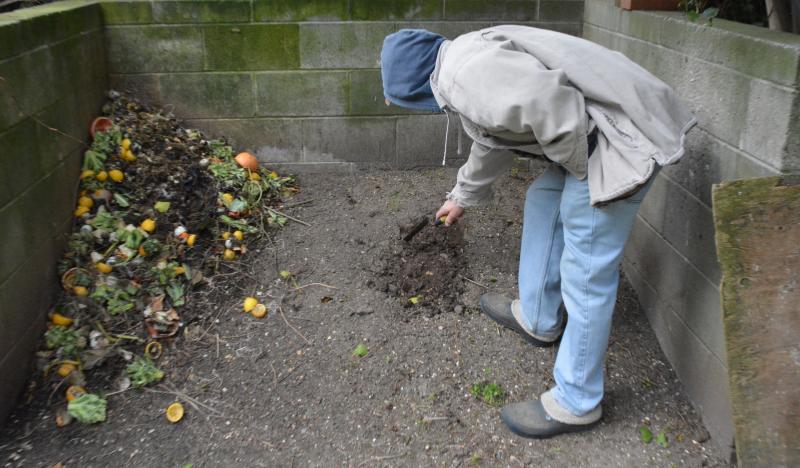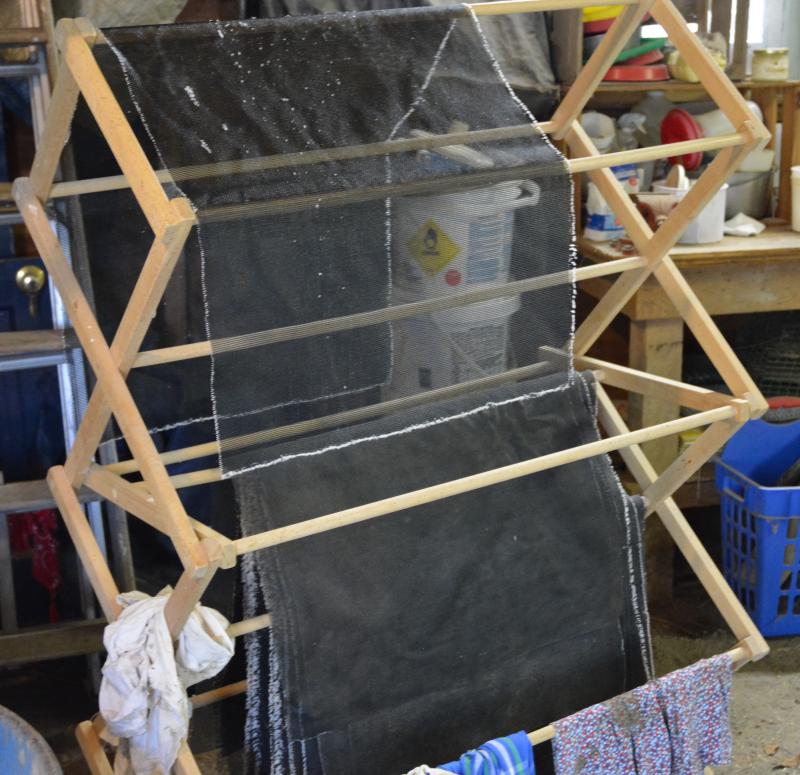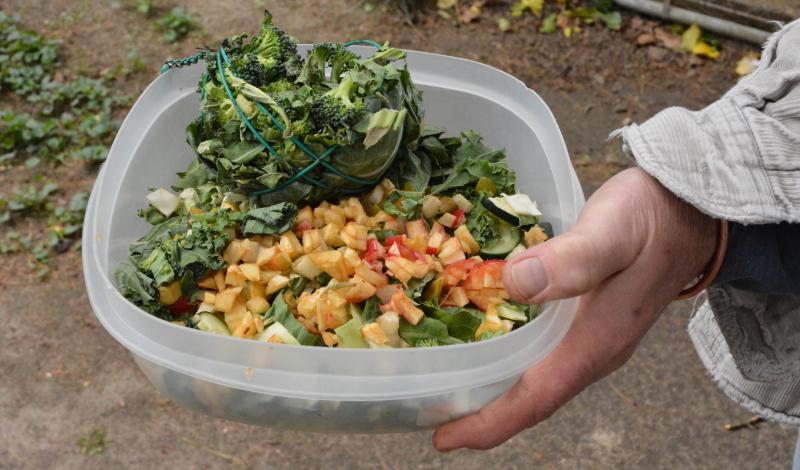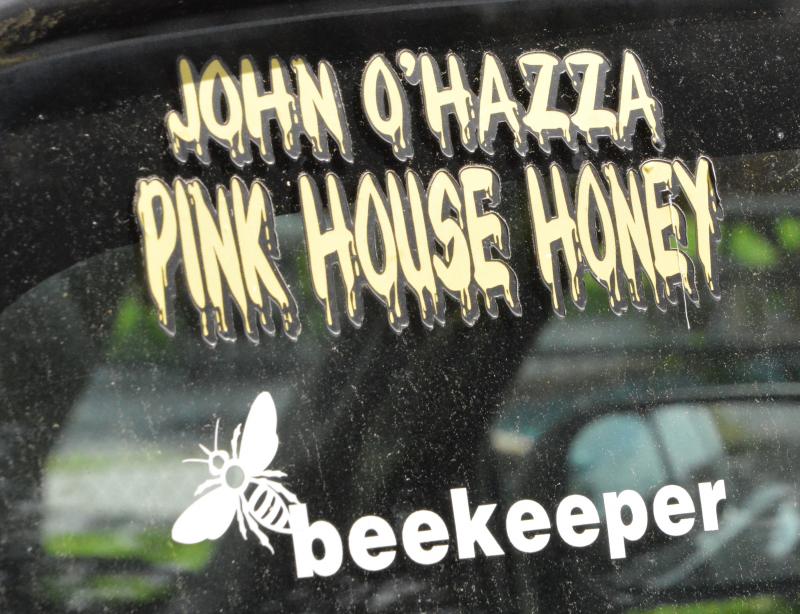John O’Hazza: Rehoboth’s last livestock farmer
Rehoboth Beach commissioners recently approved a major overhaul of the city’s animal code to bring it in line with common practice and state law.
As written, John O’Hazza will be the last person allowed to own chickens within city limits, because he was the only person in town with chickens as of Jan. 1, 2020.
O’Hazza owns two adjacent properties on Silver Lane, pretty much right on the city’s boundary. His backyards abut Rehoboth Beach Plaza off Route 1. Dead trees run across the fence line on the plaza side, but they’re covered with enough ivy it seems like the trees are alive. One of the trees recently fell into his backyard, knocking down a section of the fence. A portion of the tree is still lying there, and he showed an ivy vine as thick as an adult’s thigh.
“I like the privacy and the shade the ivy provides,” he said.
O’Hazza said he’s had as many as 40 chickens at once, but right now he has 23 – 13 in one pen, 10 in the other. Each one has a name and a story. There’s the two roosters – Billy Idol and Chewbacca – who wouldn’t stop fighting, which is why O’Hazza built a second pen. There’s Elvira, a purebred Polish chicken, who spends her nights in O’Hazza’s house. Susie is named after his mom. There’s Piper, whom he’s had since 2009.
“Piper was a broody hen,” said O’Hazza. “She’d have one or two clutches every year. Now, she’s getting older and stopped sitting on the eggs. She is a very good mother.”
O’Hazza’s chickens live in backyard pens open to the elements, but generally speaking, they live a life of luxury. They get a daily diet of raw cucumbers, collard greens, apples and broccoli. Holding out a Tupperware container of the morning’s food, he said, “On Saturdays, I put yogurt and blueberries on top.”
O’Hazza said he spends at least an hour cleaning the pens “365 days a year.” He rakes up the poop on the sod. He rotates screens, typically used for screen doors, that line the hen houses to collect the poop the chickens leave overnight. The screens get cleaned and dried.
“I’ve got a washer in the house just for that,” he said.
The pens get a layer of new sod four to five times a year. Portions of the pens are covered to protect the chickens from rain and wind, and there are dusting areas for the chickens to mess around in. The chickens clearly appreciate the love. As soon as he enters the pens, they congregate at his feet. They let him pick them up without hesitation.
O’Hazza grew up in Alexandria, Va., but he’s lived in Rehoboth Beach since 1986. He and his wife of 28 years, Terry, live in a house his parents bought in 1978. O’Hazza said he had chickens off and on most of his life, but after surviving pancreatitis in 2008, he used the chickens as a means for a lifestyle change.
“I almost died,” said O’Hazza, who used to own Sir Guy’s on Rehoboth Avenue. “So I gave up drinking and smoking. Some people go to [Alcoholics Anonymous] meetings. I began going to hen meetings.”
O’Hazza got into beekeeping in fall of 2011, but didn’t get hives until 2012. He said he was looking through a chicken-supply catalog when he came across an ad placed by some Amish guys selling beehives. He said he began to research what it would take to get into having beehives, but decided to hold off.
“Throughout the winter I couldn’t stop thinking about the bees,” he said. “The information on how to take care of them was sticking with me like I was preparing for a test.”
O’Hazza said he called the state apiarist in spring 2012 to have his property evaluated to see if beehives would work. He said he told the apiarist he wanted to have one, but he was convinced to have two. Years later, O’Hazza, who has four active hives, has the equipment for up to 30.
The hives are located behind the other house he owns, which was built by his parents. It’s a big pink house constructed of cinder blocks. O’Hazza said his dad wanted to build a house in Bermuda, but it was too expensive, so he brought Bermuda to Rehoboth.
“This will last any hurricane,” said O’Hazza, laughing. “In the future, when the seas recede, the structure of this house will still be standing.”
O’Hazza went deep into the minutiae of beekeeping – the differences between queen bees, male drone bees and female worker bees; the differences between the frames and foundations used within the hives; how long each type of bee takes to hatch; how bees survive winters; the difference between pollen and nectar; that he’s planting buckwheat in his backyard this year because the bees will produce a dark-brown honey; why he doesn’t give bees sugar water as a source of food; and why he’s hesitant to mow his lawn early in the spring.
“If the bees start moving early, dandelions may be the only thing they have,” he said.
After about 20 minutes, O’Hazza looked up. “But you didn’t come here to learn all the details of beekeeping,” he said “It’s just been a while since I’ve had a chance to talk about it. The first couple of years, all I talked about were the bees. After a while I stopped because I think people were getting sick of it.”
O’Hazza said he appreciates the city amending the new code to allow him to keep the chickens and the bees. He said a concerned friend informed him of proposed changes that would eliminate both from city code. After making a phone call, O’Hazza said commissioners were willing to listen and the ordinance was amended.
He said he doesn’t have any plans to get more chickens because he’s getting too old to keep doing the daily cleaning required to keep his pens as he’d like.
“At this point, my chickens could outlive me,” he said, smiling like a person who’s faced his own mortality before. “They’re more like pets. Some people have dogs and cats. I have chickens. I’ve hatched most of them in an incubator, so I’ve been with them their whole lives. There’s an emotional attachment, and I know nobody would take as good a care of them as me.”
